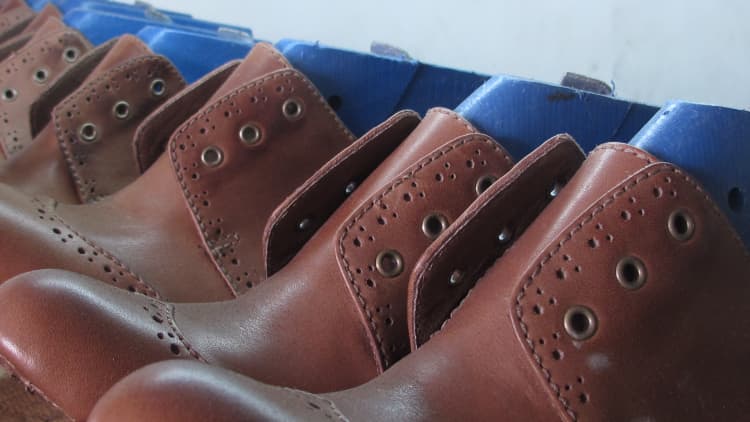School is out, which brings opportunities for teenagers and students to earn extra cash. For some, the money is a necessity, for others it buys luxuries. But what else do we gain from summer jobs?
From neighborhood lawn-mowing to a geological expedition in the Kazakh desert, we asked five business leaders to share their experiences of summer holiday jobs. No one earned a fortune, but all learned lessons for life.
Kristo Käärmann, co-founder and CEO of TransferWise
In the summer of 1993, aged 12, Mr Käärmann took a job at a business directory, verifying that the companies were indeed at the given address, their phone numbers were correct and the directors really existed. "It wasn't an investigative job," he reflects. But it was hard work. "I was on my feet every day."
More from the Financial Times:
New leaders cast off old friends
Success calls for stamina: can you go the distance?
Netflix CEO Reed Hastings on conquering Europe
It gave the young Estonian a chance to see capitalism up close as his country became independent after the fall of the Soviet Union in 1991. "It was very chaotic. Everything was new."
His next schoolboy job was planting trees in forests, which he liked for being "outdoorsy". But the chief lesson he learned from these stints was that work paid. "I could buy things like french fries, which were super-exotic."
Summer jobs, he says, helped him develop socially. Today, when it comes to recruiting young workers for his London-based fintech company, the 36-year-old Mr Käärmann says there is no right or wrong summer job to adorn a CV. But, he says, it is important that candidates have worked.
Whitney Wolfe, founder and CEO of Bumble
The dating app entrepreneur, whose service has 18 million users worldwide, says she is not suited to a nine-to-five job. She does not do well in "structured positions" — a lesson learned as a youngster, when she spent most summers working on internships, babysitting and serving in boutiques.
But in 2010, aged 20 and looking forward to the summer of her junior year at a Texas college, an opportunity to try something else presented itself — the aftermath of the BP Deepwater Horizon oil spill.
"There was news coverage all day every day about the animals affected. I wanted to find a way to raise money," Ms Wolfe says. The result was her first entrepreneurial endeavor — an eco-friendly tote bags fundraising business.
"Every business starts with your own micro network," she says, reflecting on her main takeaway from the project. "I started selling to the people I knew, and the people they knew. A lot of people said yes, and a lot of people said no."
Ms Wolfe took the fledgling venture back to college, "but my grades were suffering, and I had to make a decision". She focused on college. "I'm glad I learned how hard it is to run a business — I hated it then, of course, but I'm glad now."
Biz Stone, co-founder of Twitter
At 10, Biz Stone monetized his allotted household chore — mowing the lawn — by offering the service to neighbors in the Massachusetts suburbs where he lived. He contrived various moneymaking add-ons, such as charging $10 for a 30-degree slope, or offering to clear up the cut grass.
"I worked throughout school and did anything to make money," he says. If he overheard a neighbor saying they needed a job doing, the young Mr Stone, would volunteer his services. "Fixing an air-con unit, setting up a Mac. 'Hey, I can do it!' As long as they said they'd pay, I would do it."
It was through these odd jobs that he met his mentor, Steve Schneider. A job moving boxes at Mr Schneider's office, a graphic-design company, led the young Mr Stone to join the company.
"I knew so many people, it was a form of networking. It taught me to say yes to lots of things." The money he earned was usually handed to his mother. "I was expected to work and contribute from an early age." That, he says, taught him work was "part of life". He adds: "I would go to school, go to work, go home."
The 43-year-old finds today's focus on summer internships odd. When recruiting, he values a candidate with a story about how they started a company at a young age — even if it failed.
Arkady Volozh, co-founder and CEO of Yandex
In 2000, Mr Volozh and his late business partner, Ilya Segalovich, founded Yandex, the tech company that today operates Russia's largest search engine. Twenty years earlier, the pair worked together for the first time in a most unusual summer job: a geological dig in Kazakhstan.
The project, led by the Ministry of Geology of the Soviet Union, saw the 16-year-olds working all day in the deserts looking for chromium, the metal used to make stainless steel. Mr Segalovich's father, a geologist, led the expedition and arranged for the boys to work on the project in their school holidays.
Desert life was tough: "I did a lot of heavy lifting and traveled miles into the field to measure heights of the landscape," he recalls.
The boys made a "pretty good salary" — Rbs135 a month — because their job was classed as work under severe conditions. "I didn't make more money per month until I was 24," Mr Volozh says.
But more important than the cash were the practical skills he picked up. "I learned how to operate heavy machinery, how to fish for my dinner and how to manage during a hot day in the field," he says. "It was truly formative."
Cal Henderson, co-founder of Slack
The 36-year-old programmer-turned-entrepreneur grew up in a small English village a few hours' drive from London. It was home to a few hundred people, he says, and not much business. In fact, the only enterprises around were pubs. "We had a post office, but that closed."
When he was 15, Mr Henderson decided to buy his first computer, and there was only one place the money would come from. "I started doing the washing-up at my local pub, first during the weekends, and then three or four days a week during the summer," he says. He earned about £3 an hour.
He progressed to preparing food. "I liked doing the desserts, because it was my favorite thing to eat." The desserts were made to order, but most of the rest was prepared beforehand, and just required him to re-heat it.
This, Mr Henderson says, taught him a lesson still relevant today. "I discovered how much work goes on behind the scenes — and most work is like that: the most important things are done behind the scenes." Today, he runs a company valued at about $3.6 billion.
Like this story? Like CNBC Make It on Facebook
Don't miss: The 10 jobs where you're most likely to get a raise this summer



